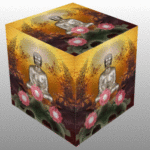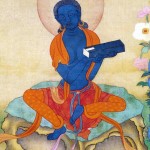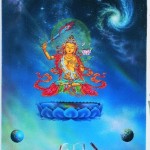Recent Comments
- Chodpa on The Place where the Primordial Speaks
- Chodpa on The Cuckoo of Presence
- Afzar on Bodhidharma’s teacher, Prajnatara
- Vajragoni on Audiobook is released
- Scott on Audiobook is released
-
Recent Posts
Categories
- A Darkness Visible
- A Docetic Assessment
- A Mystical Odyssey through the Sagathakam
- AI Creations
- Akṣayamatinirdeśasūtra
- Akṣhobhya’s Pure Land
- Ālaya-vijñāna
- Anūnatvāpūrṇatvanirdeśaparivarta
- Ariyapariyesanā Sutta
- Ascending the Noble Mountain of Primordial Perfection
- Asceticism
- Ashtavakra Gita in Light of the Unborn
- Audiobook
- Bankei Zen
- Beyond the Ascent
- Beyond the Rainbow Body
- Black Dragon Eye Mandala
- Bodhicitta
- Buddhadharma
- Buddhism’s Black Holes
- Buddhist Anecdotes
- Buddhist Hells
- Buddhist Meditations on the Tarot
- Chuang-Tzu
- Contemporary Musings
- Ḍākiṇī
- Dāsbodh
- Dharmakaya Abbey
- Dharmakaya Stick
- Divine Revelation
- Doctrine of the Void
- Dust Contemplation
- Ekacitta: Advanced Studies in Dark Zen
- Entry into the Dharmadhātu
- Eremitical Dhyani Meditations
- Exploring the Book of Revelation
- Gnostikos
- Hsin Hsin Ming
- Journey to the Center of the Mind
- Karma and Rebirth
- Korean Sŏn
- Kulayarāja Tantra—The Motherly Buddha
- Little Office of Our Lady of the Void
- LSD and Psychedelic Buddhism
- Māṇḍukya Kārikā
- Mañjuśrī Teaches Prajñāpāramitā
- Māra and Satan
- Meister Eckhart
- Mud and Water: Bassui Zen
- Mystagogia
- Nirvana
- Notes from the Iron Stupa
- Nothingness in Nāgārjuna and John of the Cross
- Obscure Religious Cults
- Preparation for the Afterlife
- Primordial Qigong
- Reflections on the Saṃdhinirmocana Sūtra
- Spirituality
- Springtime with Tozen
- Terma: A Mind Film by Vajragoni
- The Afterglow
- The Awakening of Faith
- The Bhagavad Gita
- The Book of Bodhi
- The Cloud of Unknowing in Light of the Unborn
- The Diamond Sutra
- The Divine Ātman
- The Divine Liturgy of Vajrasattva
- The Doctrine of Awakening
- The Dragon Mind of Zen Tarot
- The Elucidation of Consciousness
- The Experience of No-Self
- The Great Perfection of the Unborn Mind: A Book of Privy Counseling
- The Heart Sutra
- The Hermit's Den
- The Khaggavisāṇa Sutta: A Rhinoceros Horn
- The Lankavatara Sutra
- The Lankavatarian Book of the Dead
- The Lion's Roar of Queen Śrīmālā
- The Lotus Sutra
- The Mahāparinirvāṇasūtra
- The Naga Chronicles
- The Platform Sutra
- The Ratnagotravibhāgaśāstra
- The School of the Spirit
- The Secret Golden Light of the Unborn
- The Soul
- The Śūrańgama Sūtra
- The Sutra of Primordial Enlightenment
- The Tathāgatagarbhatārā Tantra
- The Udāna
- The Unborn Mind Mythos
- The Unborn Mind Sessions
- The Unborn Odyssey: A Novel
- The Vajrasamādhi Sutra
- The Vimalakirti Sutra
- The Yogasūtras of Patañjali
- The Zen Teaching of Bodhidharma
- The Zen Teaching of Instantaneous Awakening
- The Zen Teachings of Huang Po
- Theologia Mystica
- Tozen Teaching
- Tsung-mi: An Intimate Study
- Unborn I Ching
- Unborn Light Reiki
- Uncategorized
- Vasubandhu and the Absolute
- Wisdom from the Masters
- Wordsworth and Zen
- Yoga of the Manomayakāya
- Zen
- Zuowang
Archives
- October 2024
- August 2024
- February 2024
- January 2024
- December 2023
- November 2023
- October 2023
- September 2023
- August 2023
- July 2023
- June 2023
- May 2023
- April 2023
- March 2023
- February 2023
- January 2023
- December 2022
- November 2022
- October 2022
- September 2022
- August 2022
- May 2022
- April 2022
- March 2022
- February 2022
- January 2022
- December 2021
- November 2021
- October 2021
- September 2021
- August 2021
- May 2021
- April 2021
- March 2021
- February 2021
- January 2021
- December 2020
- November 2020
- October 2020
- September 2020
- August 2020
- May 2020
- April 2020
- March 2020
- February 2020
- January 2020
- December 2019
- November 2019
- October 2019
- September 2019
- August 2019
- June 2019
- February 2019
- January 2019
- December 2018
- October 2018
- August 2018
- April 2018
- March 2018
- February 2018
- January 2018
- December 2017
- November 2017
- October 2017
- September 2017
- August 2017
- May 2017
- April 2017
- March 2017
- February 2017
- January 2017
- December 2016
- November 2016
- October 2016
- September 2016
- August 2016
- July 2016
- May 2016
- April 2016
- March 2016
- February 2016
- January 2016
- December 2015
- November 2015
- October 2015
- September 2015
- August 2015
- July 2015
- June 2015
- May 2015
- April 2015
- March 2015
- February 2015
- January 2015
- December 2014
- November 2014
- October 2014
- September 2014
- August 2014
- May 2014
- April 2014
- March 2014
- February 2014
- January 2014
- December 2013
- November 2013
- October 2013
- September 2013
- August 2013
- May 2013
- April 2013
- March 2013
- February 2013
- January 2013
- December 2012
- November 2012
- October 2012
- September 2012
- August 2012
- May 2012
- April 2012
- March 2012
- February 2012
- January 2012
- December 2011
- November 2011
- October 2011
Meta
Tag Archives: Manjusri
The Dharma of the Unborn Buddha Mind

There is no greater enemy than one’s own desires, one’s own fears, one’s own pride and one’s own self-ignorance. Rich or utterly poor. Powerful or powerless. Insidious or good. Whatever the karma behind our present body consciousness is, we should never accept it nor become too complacent with its transient images that once invited to roam freely, will ultimately re-focus our Minds to deem this illustrious haze of half-truths and lies as real-self or part of self-actualization.
Posted in Springtime with Tozen
Tagged Genuine Zen, Manjusri, Right View, turn-about
Leave a comment
Pleasurable Prajñāpāramitā

Pleasurable Prajñāpāramitā ushers-in a boundless Buddha-realm that is devoid of all contingent sentimentalities such as sentient beings who bake pies infused with discriminatory ingredients that never satisfies the oversaturated diet of superfluous notions like samsara or nirvana. Thus nothing is neither gained nor lost. The herald of such a no-nonsense realm is the Cittadhatu ennobled with the Element of Truth thus ending all habitual vicissitudes of a once diseased consciousness that labored endlessly in rotten fields of no-good merit. This herald’s Queen is the Element of Perfected Transfiguration who gives birth to the Clear-Light Child whose tabernacle is the Supreme Buddhadharma—home of the exalted Prince of the Tathagatas.
Posted in The Afterglow
Tagged dharmadhatu, Element of Truth, inconceivable samādhi, Manjusri, prajnaparamita
Leave a comment
Dharma-mind of the Absolute

Chapter Eight: The Dharma-body of the Tathagatas
(JK) At that time the great Bodhisattva Mañjuśri questioned the Buddha and said: “World-honored One, you have taught about the Dharma body of a Tathagata. How is this Dharma body to be characterized?”
Bodhisattva Mañjuśrī

The Most Noble Bodhisattva Mañjuśrī forthwith arose from his seat in the sacred assembly, bowed and then prostrated himself at the feet of the Tathagata and then circumambulated about him three times to the right. He then knelt down and with hands clasped in a manner depicting sublime devotion, invoked the Blessed One.
The Vow of Practice of Universal Good

Of all the twists and turns in this marvelous Avatamsaka Saga, who would have suspected that Sudhana’s search for the “supreme perfect enlightenment” would simply return him to the beginning of his quest—in the presence of Mañjuśrī. It’s like Glinda telling Dorothy at the end of the Wizard of Oz that she need not had journeyed any further than within her deepest and inmost-self. Maitreya sets the stage:
Posted in Entry into the Dharmadhātu
Tagged Bodhisattva of Universal Good, Manjusri, Samantabhadra
Leave a comment
Mañjuśrī Elects Sudhana

www.studyblue.com
Posted in Entry into the Dharmadhātu, Spirituality
Tagged Abbagotaragarbha, ariya, bodhichild, kalyānamitras, kumārabhūta, Manjusri, Sudhana
Leave a comment
Emptiness on a Thursday Afternoon

Mahāratnakūṭa Sūtra
46. Mañjuśrī Teaches Prajñāpāramitā
Translated from Taishō Tripiṭaka volume 11, number 310
Posted in Mañjuśrī Teaches Prajñāpāramitā
Tagged Bhagavān, bhiksus, Bodhisattva, Dharma, Emptiness, Manjusri, prajnaparamita, Right Contemplation, saṃgha, Śāriputra, sunyata
Leave a comment
Mañjuśrī Teaches Prajñāpāramitā

Perhaps more than any other Celestial Bodhisattva, Mañjuśrī best captures the epitome of Wisdom. Mañjuśrī is undoubtedly synonymous with and the very embodiment of the Perfection of Wisdom (Prajñāpāramitā). He is the ever-present guide and interlocutor in countless sutras; perhaps best well-known for his role in the Vimalakirti Sutra where he is the only fearless Bodhisattva present who dare go and visit the apparently ailing-lay bodhisattva, the mysterious and Noble Vimalakirti, and whose subsequent dialog with him becomes the very cornerstone of that sutra. He is also a prominent feature in the Lotus Sutra where he becomes privy to what the Buddha is about to reveal, even before the majestic Maitreya. Less well known is his pivotal role in a sutra from the Mahāratnakūṭa corpus, Mañjuśrī’s Discourse of the Pāramitā of Wisdom. Yet, this little gem packs a powerful punch in the spirit of the Diamond Sutra, and could actually be considered its sister text. It expounds a very High-Gnosis, not based on the relative truth of the mundane, but instead the Ultimate Truth of the Unborn and Absolute. Before venturing-forth in this new series, it is appropriate to begin with an exposé on the nature of its shining star—Mañjuśrī, the Maha-Bodhisattva of Transcendent Wisdom, whose name Man-ju (charming, beautiful and pleasant), and Shri (meaning a shining glory) encapsulates the very essence of the Prajñāpāramitā literature.
Mañjuśrī’s Monology
Both Maitreya and Mañjuśrī give wonderful monologues, both in prose and gatha (poetic) form, respectively asking and responding as to the nature of the Buddha’s Illumination. Portions from Mañjuśrī’s Monologue in prose form are as follows:
Posted in The Lotus Sutra
Tagged Bodhisattvas, Candrasūryapradīpa, Dharma, light, Maitreya, Manjusri, Pratyekabuddhas, Six Paramitas, Śrāvaka
Leave a comment

